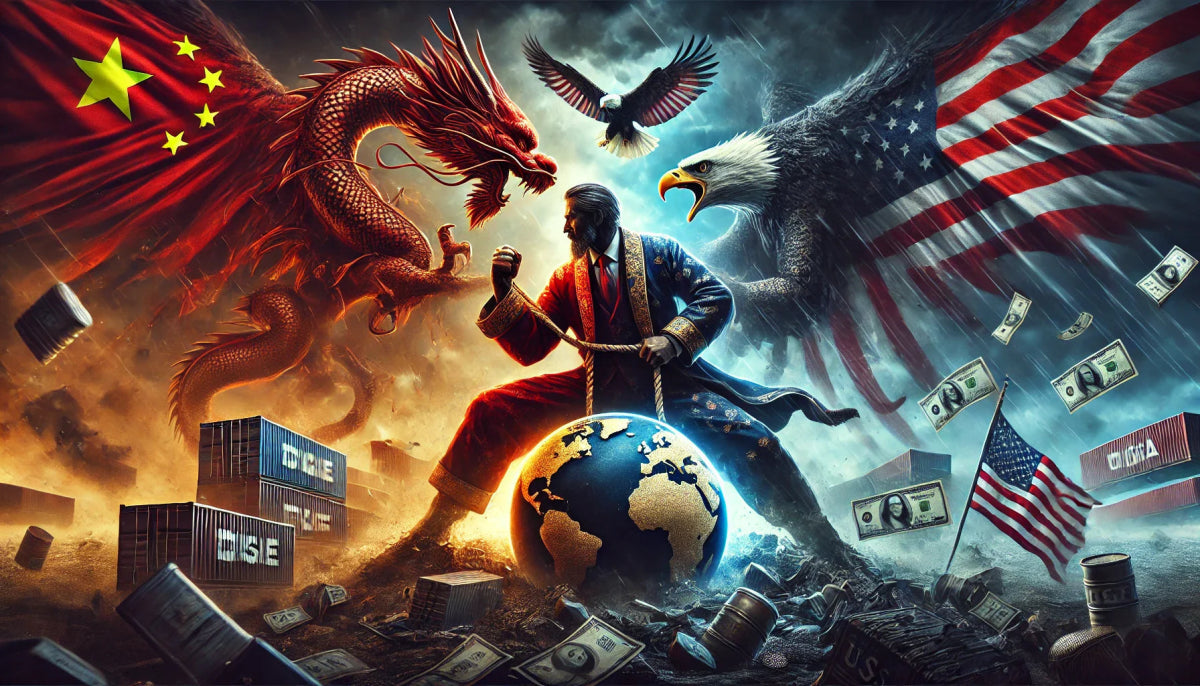The 2025 Trade War: A New Chapter Under President Trump's Second Term
As Donald Trump begins his second term as President of the United States in 2025, one of his administration's first significant moves has reignited a trade war with China. The aggressive stance includes tariffs on a wide array of Chinese imports and other economic countermeasures to reduce the U.S.'s dependency on Chinese goods. While the administration argues this is a necessary step to protect American jobs and industries, the resulting impact on U.S. consumers is set to be significant.
The 2025 Trade War: What's Happening?
In his second inaugural address, President Trump reaffirmed his commitment to "America First" policies, vowing to strengthen domestic industries and counter what he termed "China's economic aggression." The administration announced sweeping tariffs on over $300 billion worth of Chinese imports, targeting sectors like consumer electronics, automotive components, household goods, and textiles.
China quickly retaliated with tariffs on American exports and tightened restrictions on exporting critical raw materials, including rare earth elements and antimony, essential for manufacturing technologies like semiconductors and electric vehicles.
This tit-for-tat escalation has set the stage for one of the most impactful trade wars in recent history.
How Will This Impact U.S. Consumers?
- Higher Costs on Everyday Goods
- Many consumer products, from smartphones to furniture, are manufactured or assembled in China. With tariffs effectively acting as an additional tax on these imports, retailers are expected to pass the higher costs onto consumers.
- For example, a smartphone costing $800 could now exceed $1,000, while household essentials like kitchen appliances and toys may also see price hikes.
- Inflated Prices for Electronics and Tech
- China is a global leader in the production of semiconductors and electronic components. With new tariffs, the costs of producing laptops, TVs, and gaming consoles will skyrocket. This is particularly concerning as demand for consumer technology continues to grow.
- Impact on the Automotive Industry
- The auto industry relies heavily on Chinese parts, from batteries for electric vehicles to steel and aluminum for traditional cars. Tariffs on these materials will likely increase the price of vehicles, adding thousands of dollars to consumers' sticker prices.
- Fashion and Retail Adjustments
- Clothing and footwear, staples of American consumer spending, are expected to become more expensive. Many fashion brands have relied on Chinese manufacturing for decades, and shifting production elsewhere will take time and money. These additional costs will eventually be reflected in retail prices.
- Broader Inflationary Pressures
- The ripple effects of the trade war could exacerbate inflation, which had already begun to stabilize in the early 2020s. As production costs increase, so will the prices of goods and services across various sectors.
Why Are These Policies Being Implemented?
President Trump's administration argues that these measures are necessary to:
- Protect American manufacturing jobs by incentivizing domestic production.
- Address what it perceives as unfair trade practices by China, including intellectual property theft and currency manipulation.
- Reduce the U.S. trade deficit with China.
While these goals are ambitious, economists warn that the immediate impact will likely be felt most by American consumers and businesses as higher costs erode purchasing power.
What Can U.S. Consumers Do?
While the macroeconomic factors are beyond individual control, consumers can take proactive steps to mitigate the effects:
- Shop Smart: Watch for sales and consider buying big-ticket items before price increases take effect.
- Support Domestic Products: Look for alternatives made in the U.S. or from countries unaffected by the tariffs.
- Reduce Consumption: Adopt a more minimalist approach to purchasing, focusing on quality over quantity.
- Prepare for Price Hikes: Budget for potential increases in everyday expenses.
Looking Ahead
The 2025 trade war is shaping up to be a defining moment in U.S.-China relations, with long-term implications for the global economy. While the Trump administration's strategy aims to prioritize American interests, the immediate fallout includes higher consumer prices, disrupted supply chains, and economic uncertainty.
As this trade war unfolds, Americans must brace for its economic impact while navigating a rapidly evolving marketplace. Hopefully, these short-term challenges will pave the way for a more balanced and resilient U.S. economy, but only time will tell if the strategy delivers its intended results.




